Leaving your child at an early childhood centre or with a home-based educator can be heart wrenching. A child may become a lot quieter than usual or kick up a fuss. Either way as parents we worry. We question whether we are doing the right thing. We may even begin to wonder if there is something wrong with our child when we see other children seeming to cope okay – but of course we know in our hearts that the problem is due to the situation.
So, what can you do? Consider some of the tips below to help for smoother drop-offs.
Playing games or something more serious?
How do you know if your child is playing silly games to wrap you around their finger or if something more serious is wrong?
A child suited to a particular ECE service (e.g., keen to go, likes the structure or lack of structure in the programme, has a friend or playmate already attending the service) should settle within seconds/ minutes after you’ve gone but could take a little while longer for the first few drop-offs.
However, every child is different. While some will settle quickly and even wave good-bye or push their parent out the door, others won’t. Various factors that can cause unsettled drop-offs include:
- Whether the care arrangement suits the child
- The child not having a person at the ECE service whom the child trusts
- The age or intellectual development of the child meaning that a child may not understand an adult’s explanations and may therefore feel abandoned or dumped
- Sickness, illness or lack of sleep
- Events and circumstances happening at home or in the child’s life
- Too many new faces at the service
- No known playmates, family friends, or established relationships with adults the ECE service
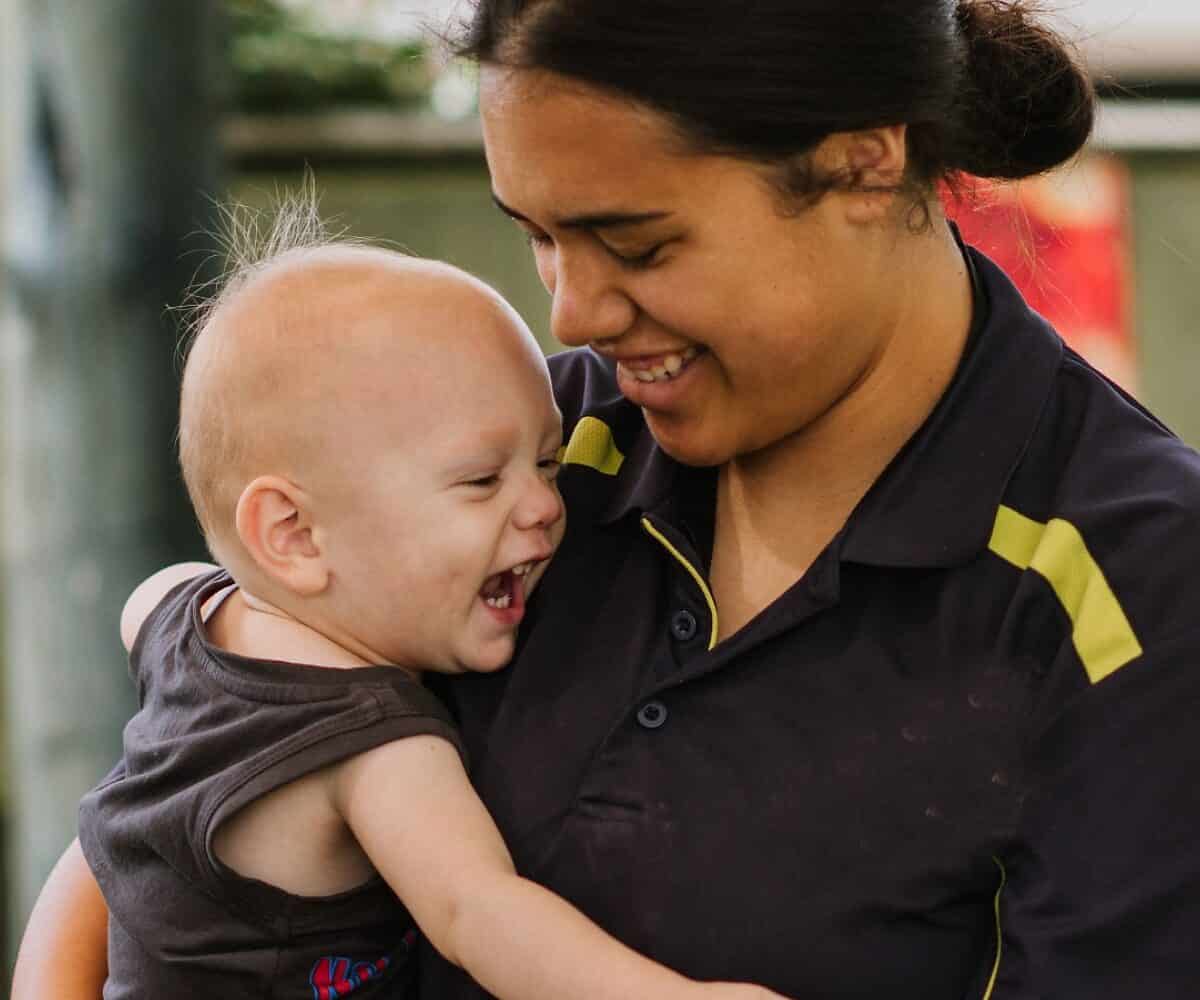
Hearing the cries of our child as we are leaving is traumatising. It can be treated as a ‘common’ occurrence – that children cry when their parents leave. But this doesn’t mean everything is okay and that you as a parent should accept this and simply ‘get over it’.
Some children remain upset and unsettled for long periods, sometimes even for the whole session or day. This can continue for days, weeks or months.
Unfortunately, a culture of telling parents ‘only what they want to hear’ has evolved at some ECE services, even at high quality centres and home-based services. This is because some carers think the parent has no choice but to leave the child, so they don’t want the parent feeling more pressured or guilty. There are also other reasons why parents might not be given the full picture about how their child is coping, for example, staff can feel pressure by managers or owners of the service to keep a child’s enrolment because the child brings money to the service, or an inexperienced carer might think that its natural for children to cry when left and not see that much can be done about it
As a parent, use your judgement, listen to your feelings, what your instincts tell you and insist the carers or teachers at the service tell you truthfully how your child is doing.
It can be tiring for children in an often intense, noisy and busy environment with other children and adults. Sometimes considering alternative care arrangements more suited to your child is a good option. But take care not to change about too often as this too can be very unsettling.
Parents with children attending short hour sessional services (e.g. 2- 4 hours at a time) are more likely to experience smoother drop-offs as children can be comforted by the fact they will be going home at lunchtime or are only staying for the afternoon. It is quite a lot harder to tell a small child that pick up won’t be for another 8-9 hours – “see you at dinner”.
Perhaps the ideal way to start is to start part-time or on a sessional basis. Think of ways that you can arrange things at home, with other adults in your family, or at work so that you never feel forced to drop your child off at the ECE service when you know it’s not going to be easy, e.g., if your child has had a bad sleep, caught a cold or other unsettling events or circumstances.
However, if you’re currently in such a position to not ‘have to’ drop-off and run, take care not to get wrapped around your little one’s finger!
Chatting to your child prepares your child
Regularly explain and ask your child about:
- What everyone does on a Wednesday, e.g., “I go to work, mum goes to work, brother goes to school, you go to kindy”
- How no-one is home, “You would be at home all by yourself while everyone else is out, so you’ll have much more fun at kindy”.
- What will happen, e.g., “Tomorrow we will wake up, get changed, have breakfast, drive to kindy, say goodbye, you’ll have fun at kindy then I’ll pick you up”.
Without overdoing it, chat about what your child will do today, tomorrow or tonight. This can eliminate the surprise element that can unsettle a child.
Chat about the fun times at the ECE service. Also listen to your child’s reasons why they don’t want to go and help the child to overcome any issues, e.g., if getting hit by a friend to shout “No” or “I’ll stop playing with you” (also discuss such plans with the staff or carers). These are opportunities to use your love, attention, listening and support to build your child’s resilience to solve their own problems.
Minimise the morning rush
Prepare so that mornings can be loving, attentive, fun and precious times together. Perhaps more important than routine is:
- Avoid rushing
- If your child sleeps in don’t panic – you can help them get changed then eat porridge or toast in the car or as you are walking on the way
- Smile, cuddle, laugh
- Enjoy breakfast – at home or in the car on the way can be fun
- Keep up the chatter (without overdoing it) about what everyone is doing today, e.g., “look, there are the big kids going to school today” (your child will soon take over saying that).
Routine makes for a smoother drop-off
Use your judgement and follow your child’s lead to develop a drop-off routine that works for you both. Here’s one example of a routine:
- Avoid rushing, give yourselves plenty of time.
- Happily, greet the adults and children at the service when you walk in.
- Wait and praise your child as he/she puts own drink bottle and lunch box away and hangs up bag… offering to help is fine too.
- Sit down and read “a couple of books” (make it the same no. of books each day)
- Finish reading, get up, smile, go down to child’s level, ask for or give a big kiss before going.
- If there any signs of unsettling then reassure child by repeating the previous chatter “remember it is Wednesday, I go to work, brother goes to school, you go to kindy”
- If there are signs of unsettling let your child’s carer or teacher know so that he/she can hold and reassure your child as you leave
- Leave happily
- Wave goodbye happily from a distance to your child if she/ he is watching you leave
- Once you’ve left try not to let your child see you again. Be careful when taking sneak peeks to see how your child is. Use your phone to check in with your child’s carer if you’re concerned.
- A routine may change and evolve but try to establish one early and stick to it. At the least, follow through with what you say, “Ok one more book but after this one I’m going to leave”.
- Identify the best person for leaving your child with… observe which adult your child might settle best with.
It is important your child knows you have gone, and it is great if the carer can help by taking your child to the window or gate to wave goodbye.
Thirty minutes or an hour after leaving, call the service to see if your child has settled. Get that reassurance. Insist that you want to be told truthfully what is going on.
What can make leaving your child worse?
- Rushed mornings and rushed drop-offs without routine can end in meltdowns. Add this to your list of not-to-dos
- Floating or walking about the ECE service, prolonging leaving which can make your child more anxious
- Leaving your child then coming back because then your child does not know clearly if you are staying or going
- Leaving without saying goodbye or sneaking out – your child will lose trust in you. (Even if after arrival your child runs off to play it is worth finding your child for a goodbye kiss or wave before you leave)
- Expecting you will always be able to just drop and run (prepare for the unexpected so you can manage the drop-off better if something does go wrong)
- Showing you are upset instead of happily leaving (your child can feel upset on noticing that you are upset).
- A different parent or adult drops off the child
A teacher’s view
Sandra
This is an excellent article and covers everything I could think of. As a teacher I find taking the time to sit with an unsettled child, usually over a book or a quiet activity such art, playdough or puzzles (whatever the child likes) really makes a difference.
You may also be interested in reading
Will my child bond and love a teacher or career more than me? (Parent-child attachment when children are in childcare for many Hours)
Making sure your child has settled in and will be emotionally okay
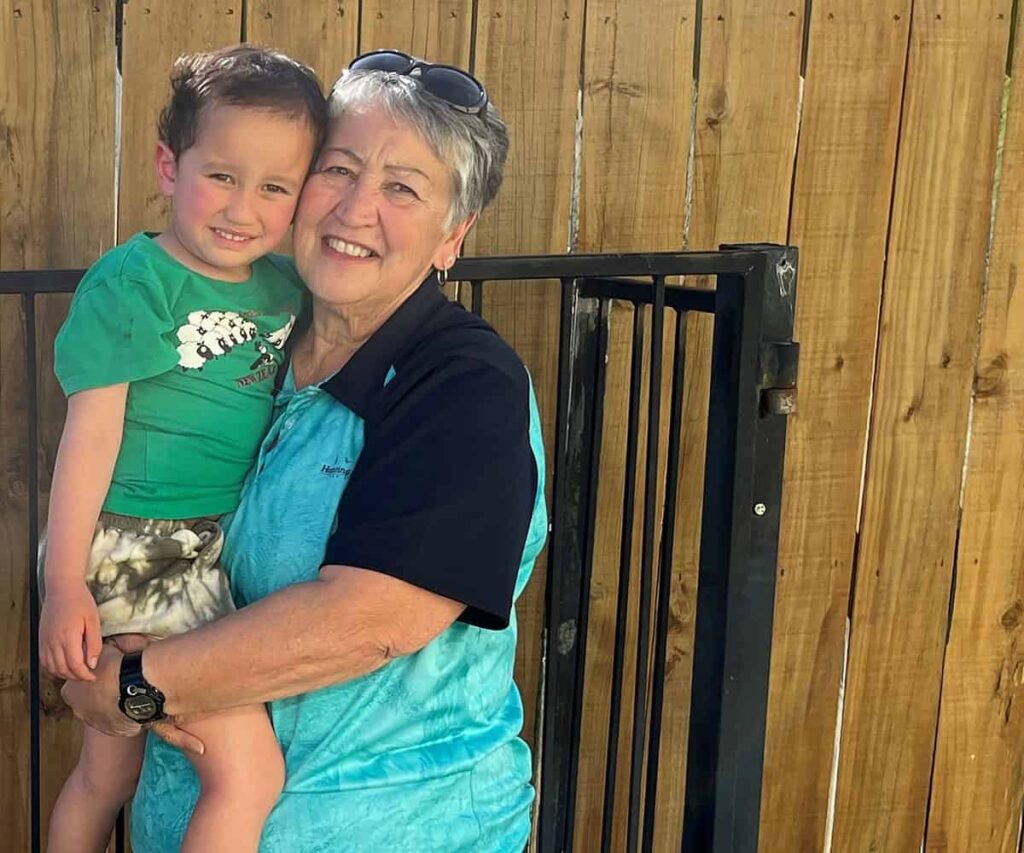
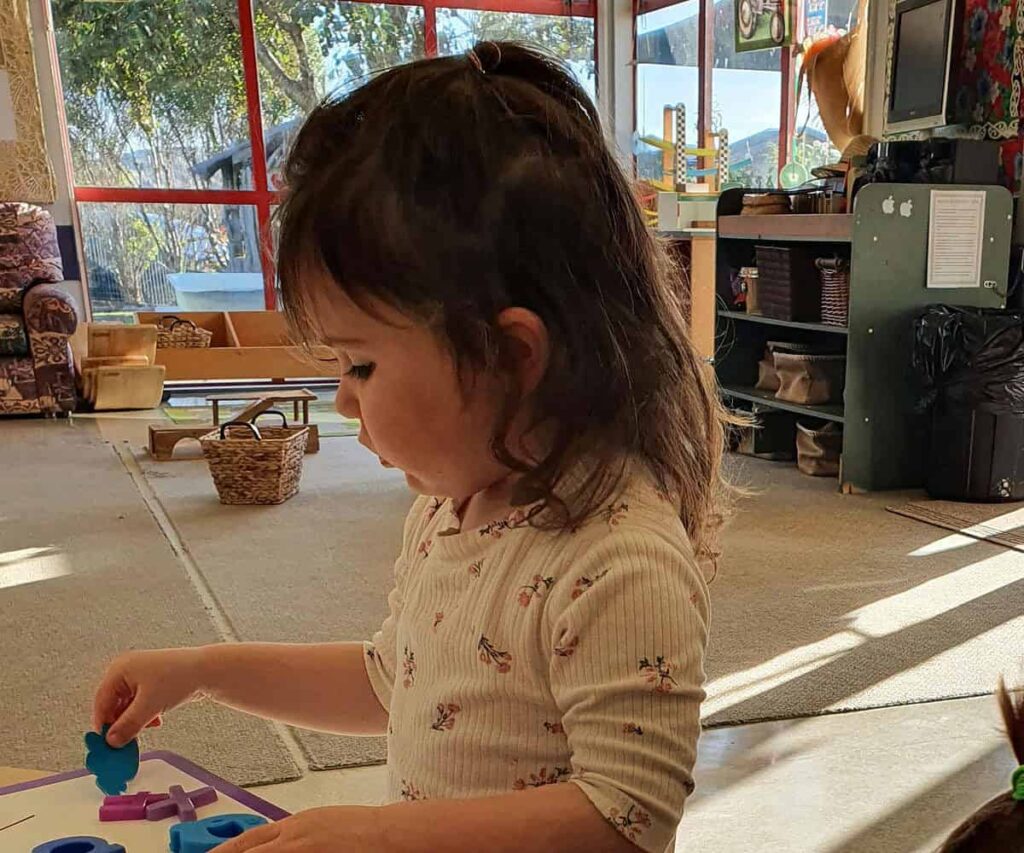

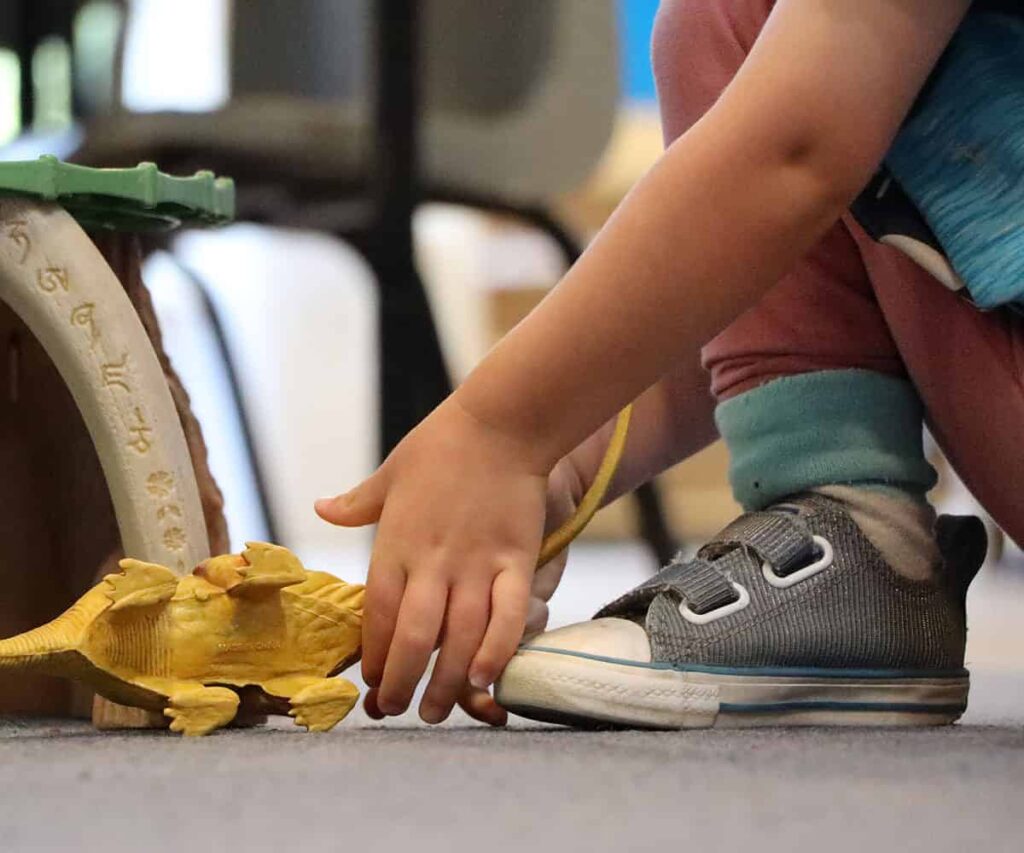
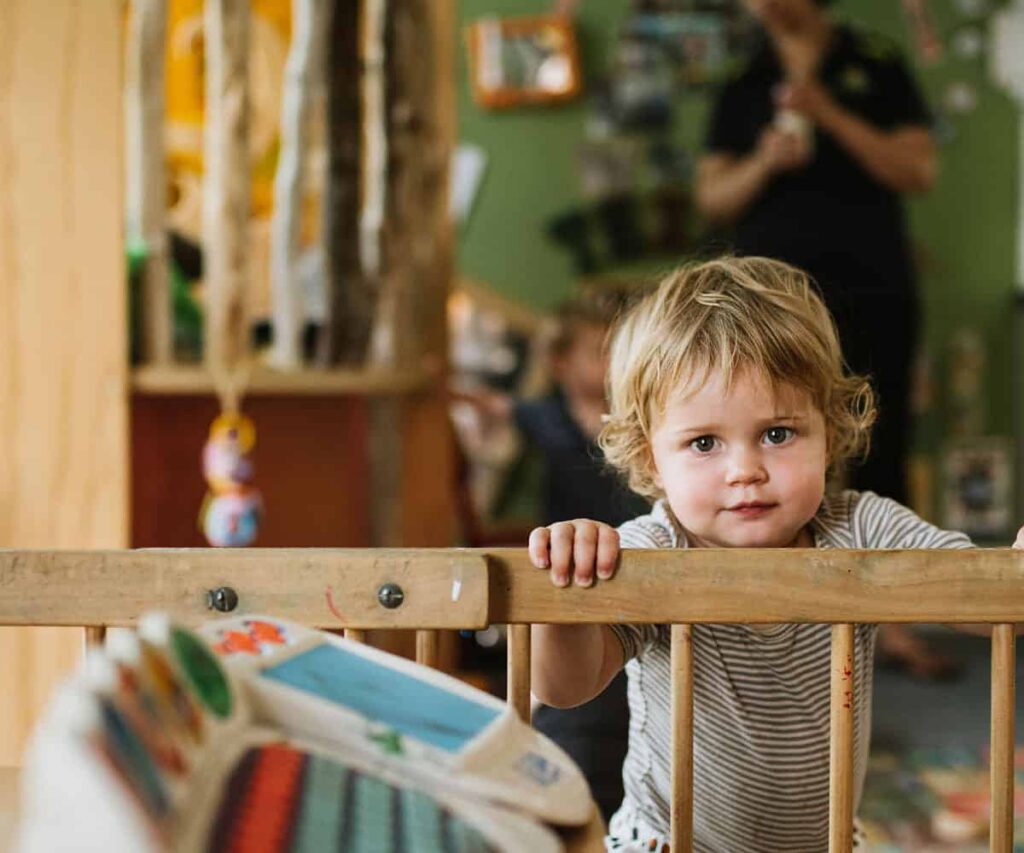
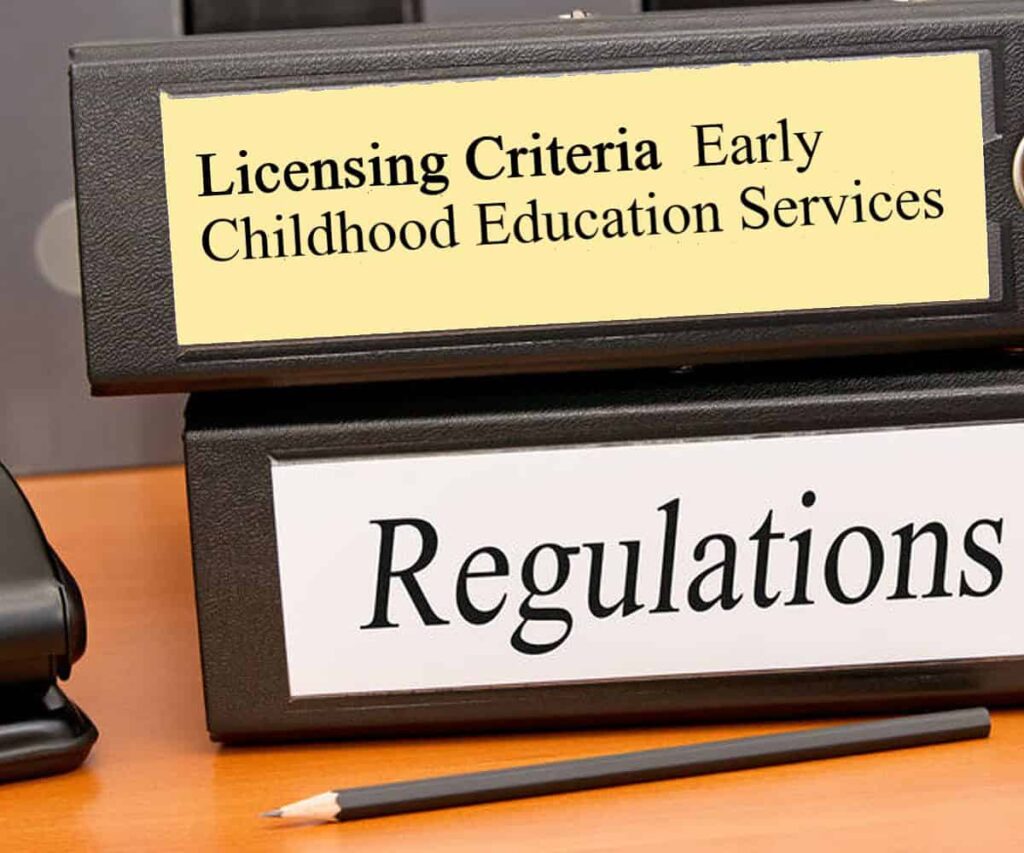
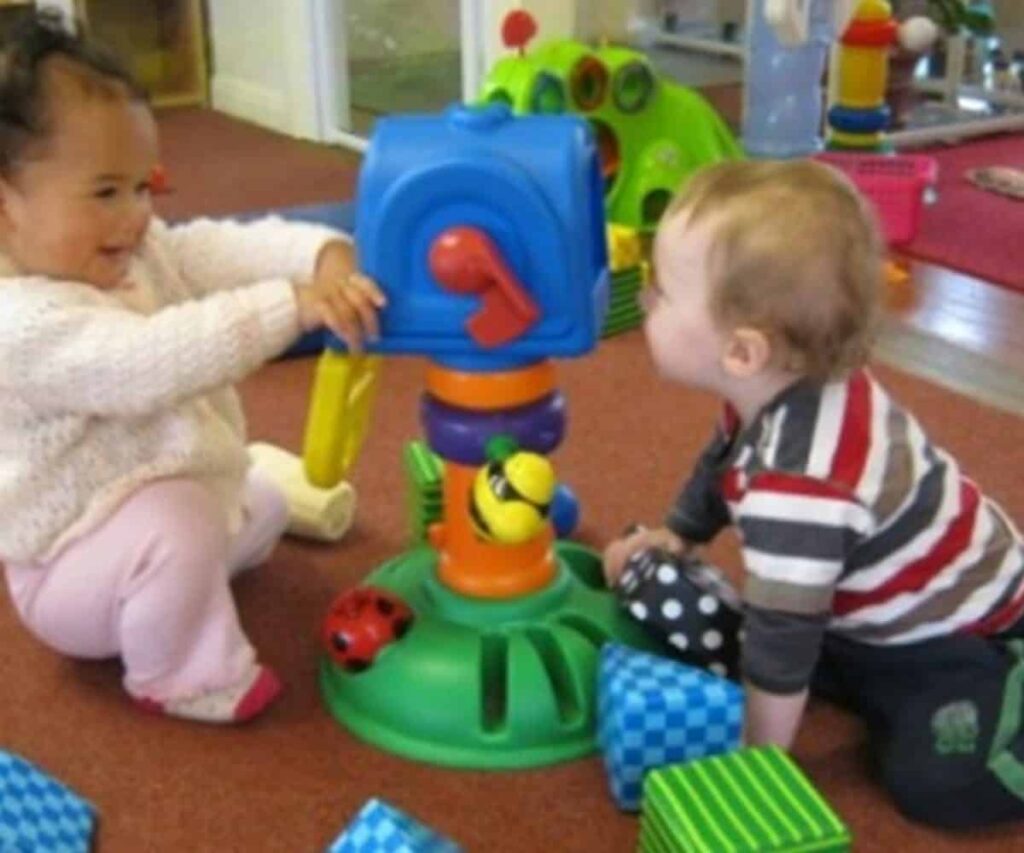

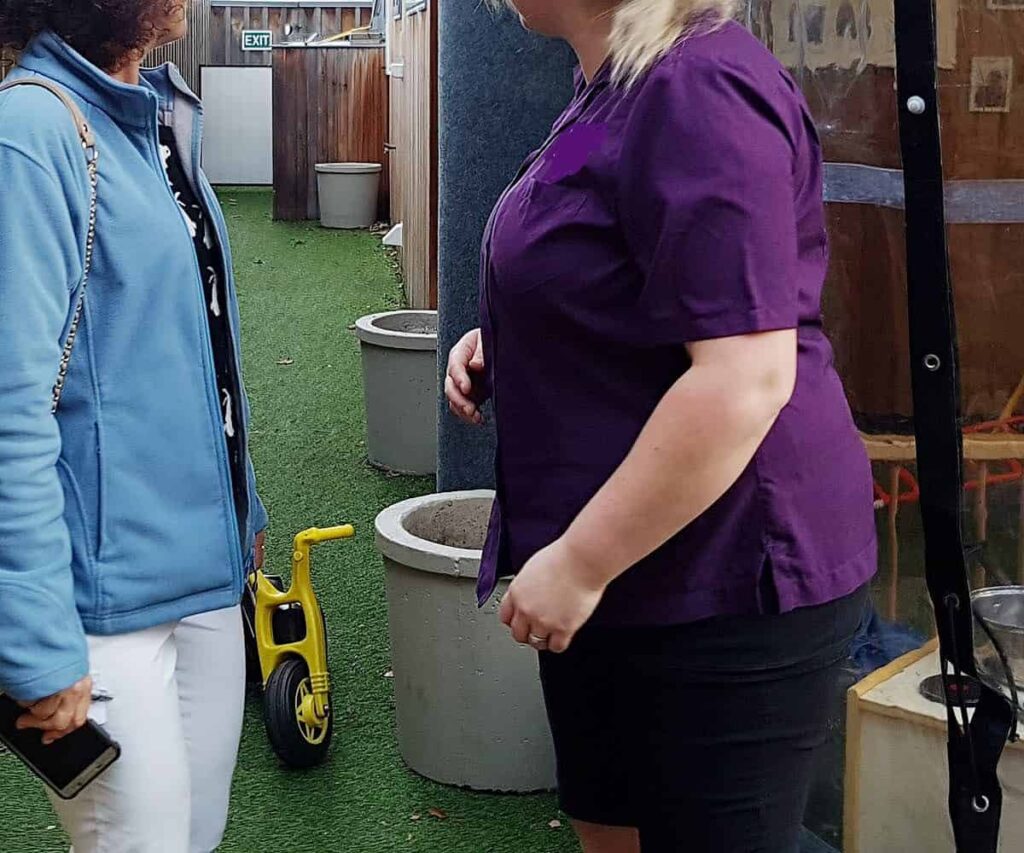
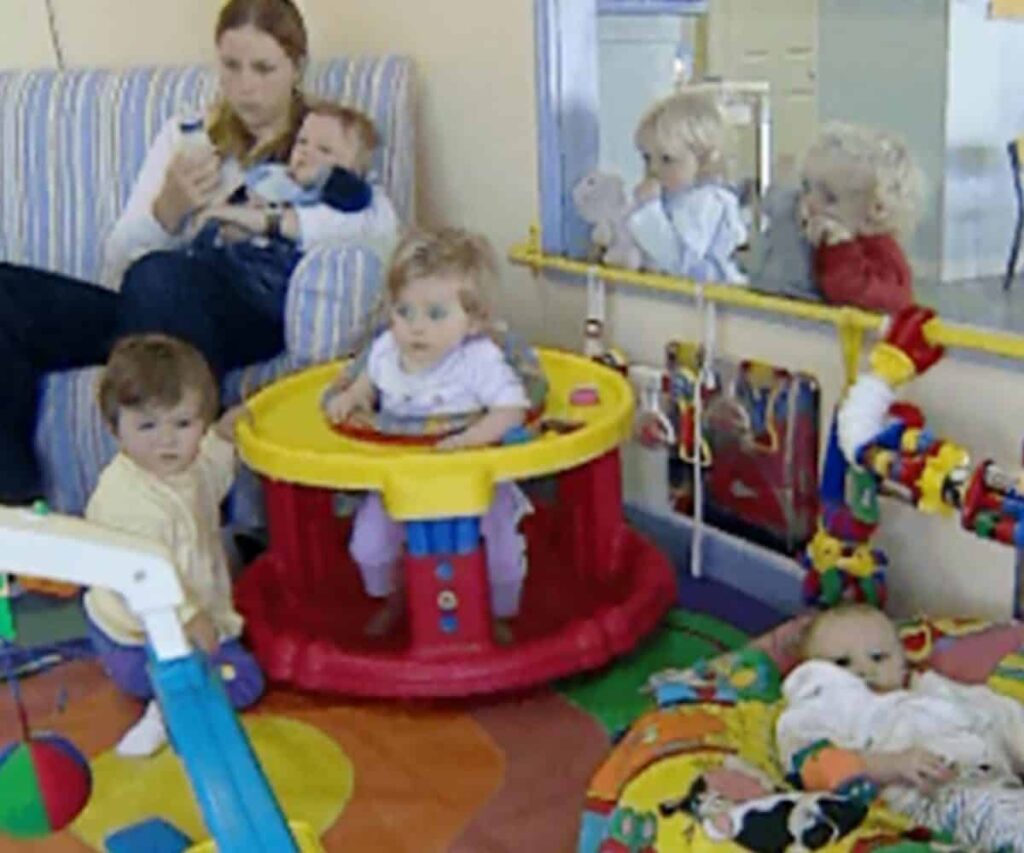
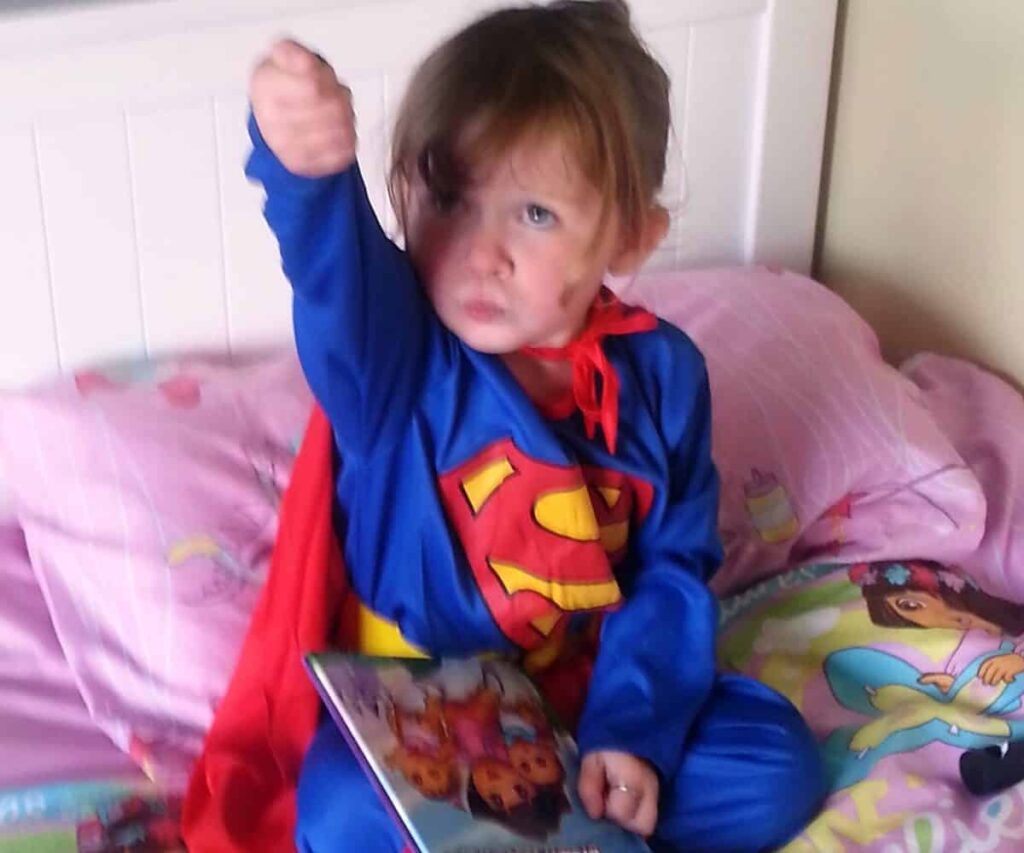
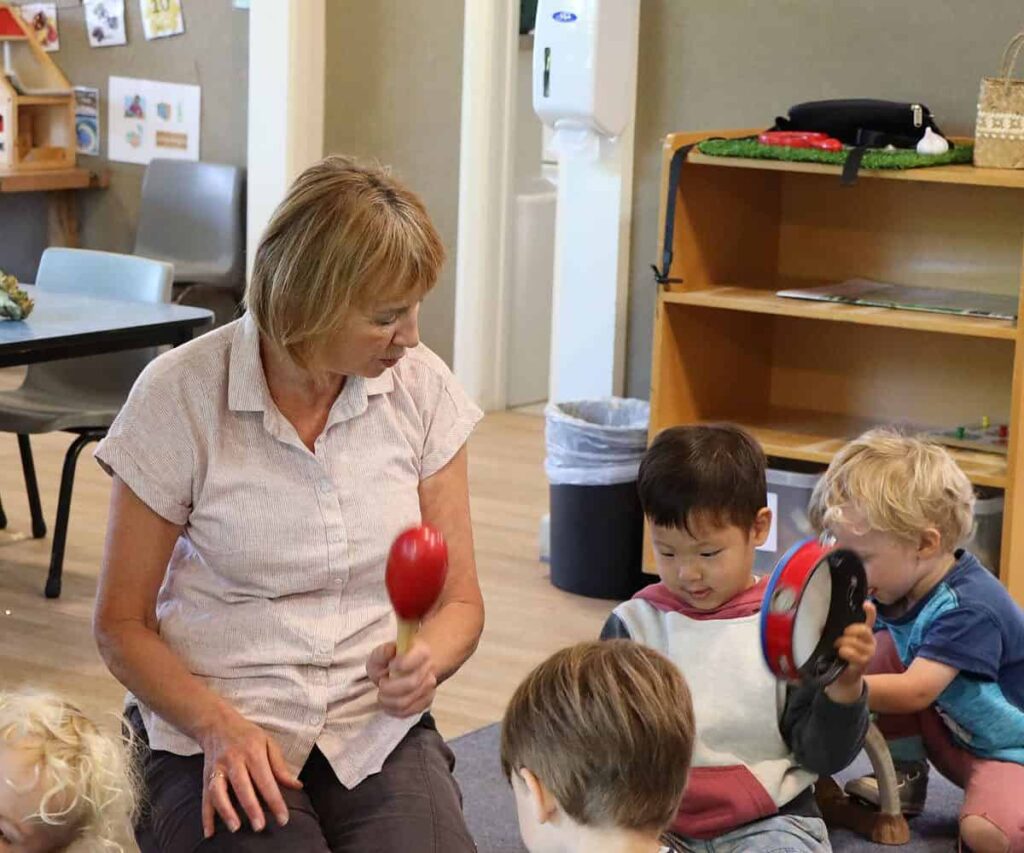
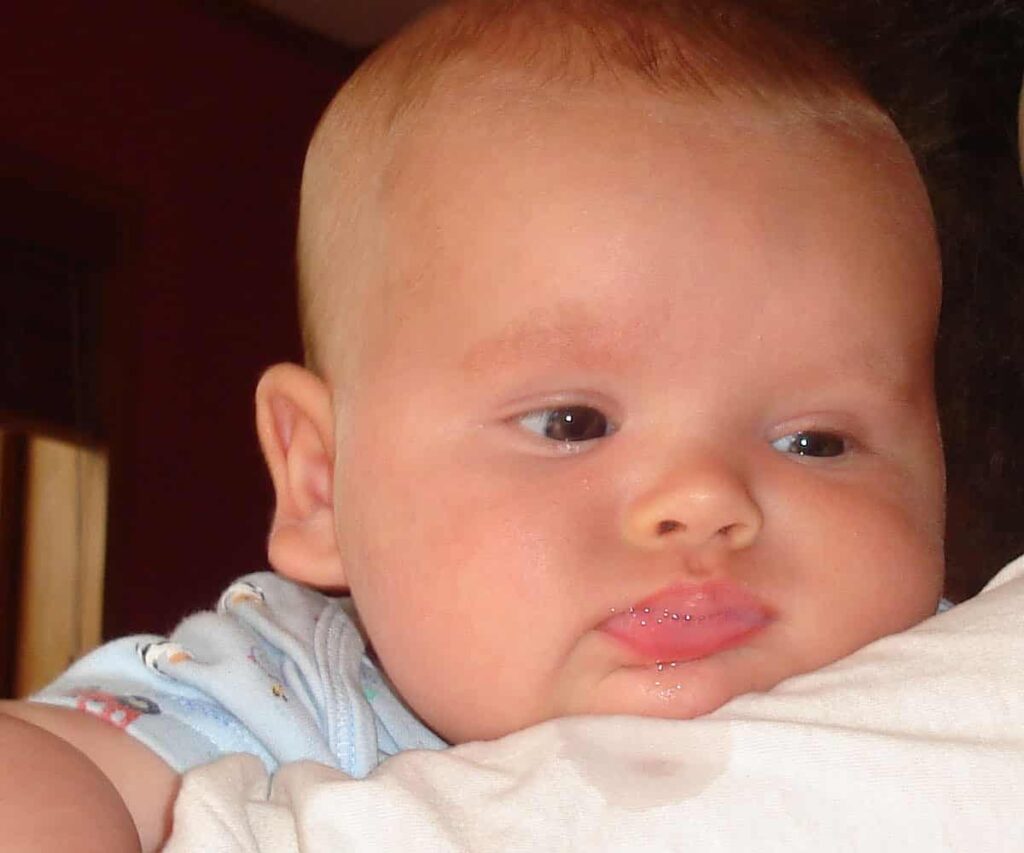
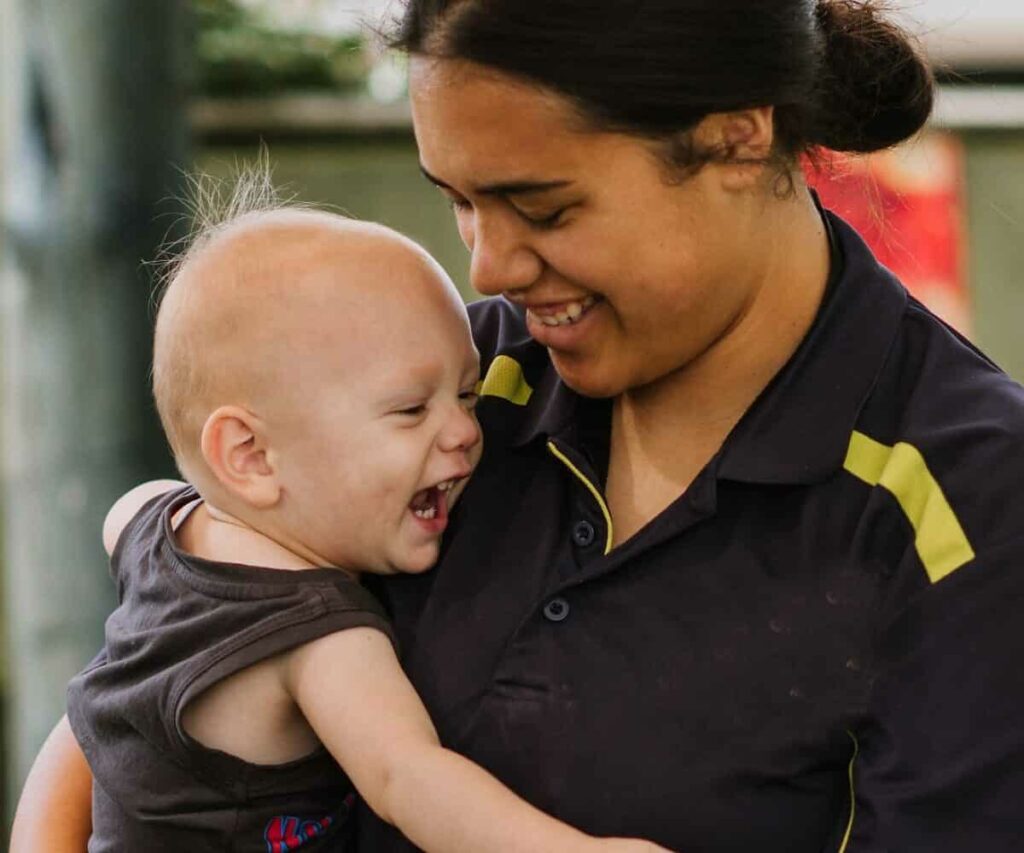
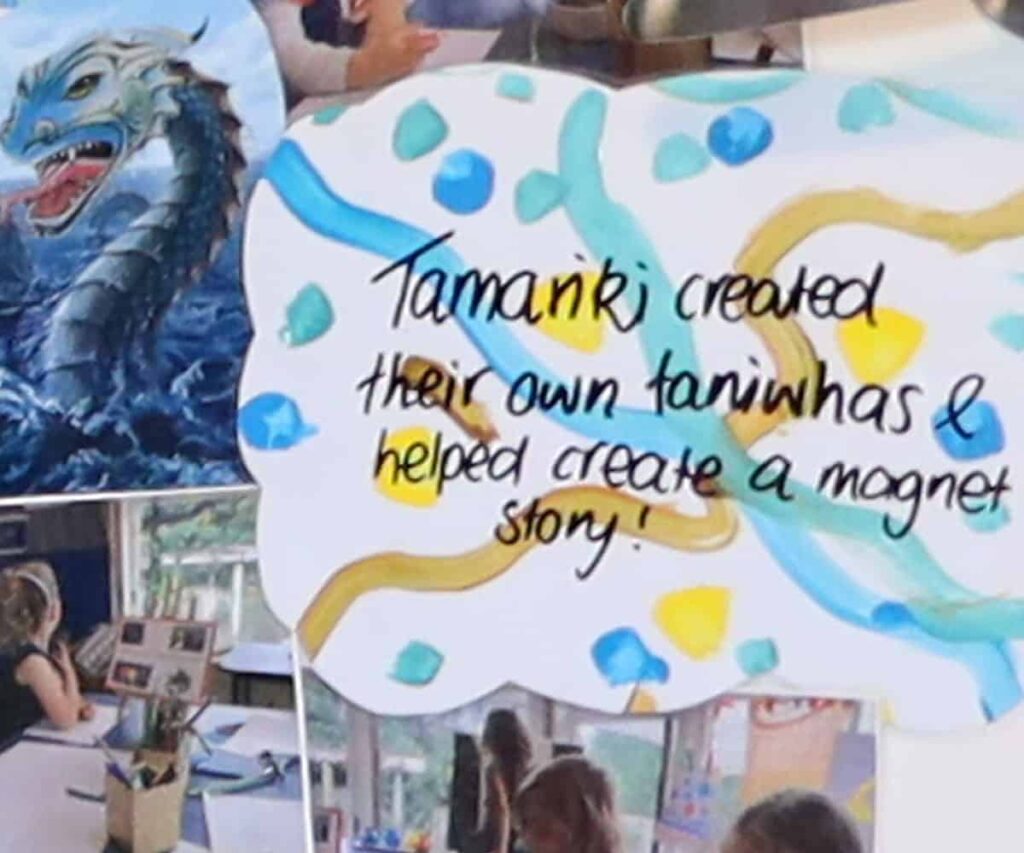
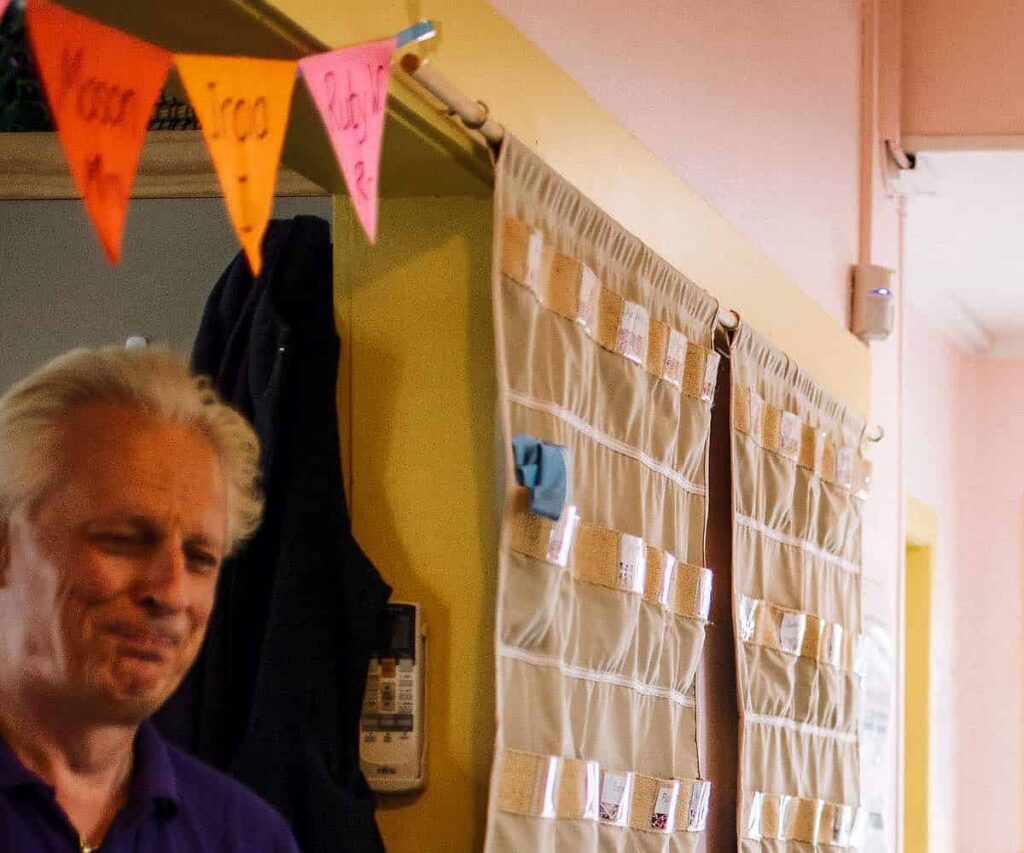



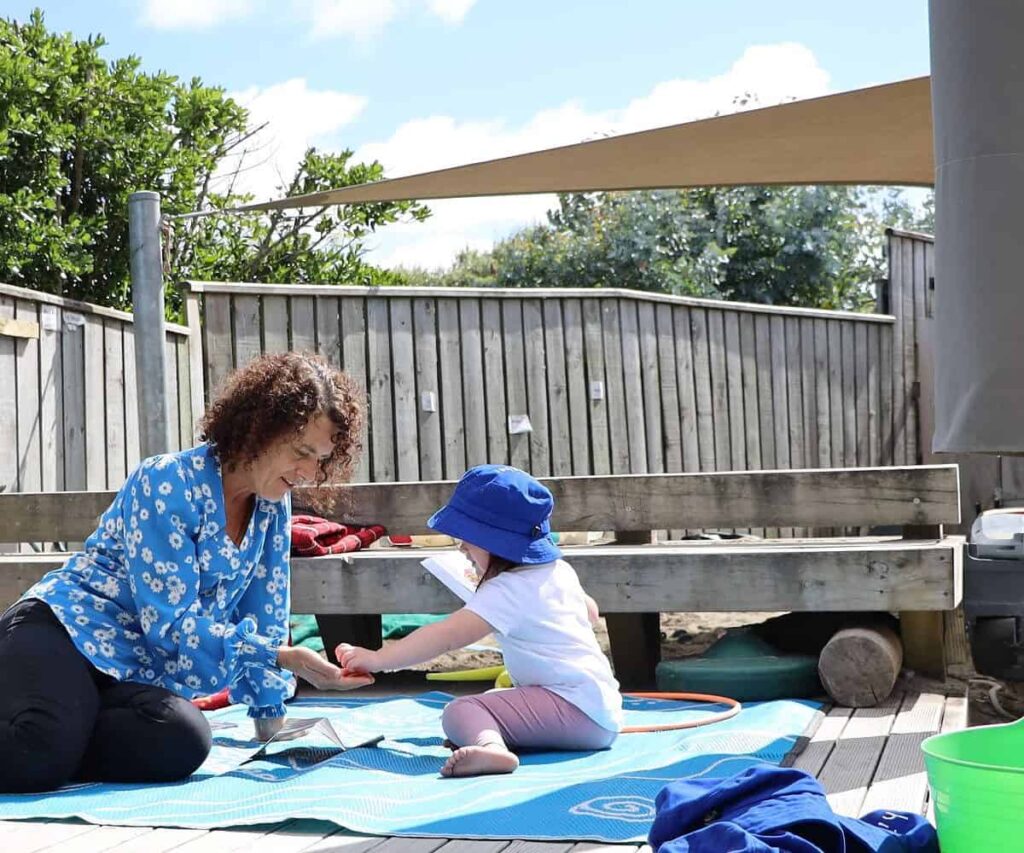

3 Responses
Im currently training to be an early childcare educator in NZ and have found this information so helpful in ways to settle and adapt to each tamariki. I will definitely be trying some of these in my centre!
I am trying to get my son to settle at an ECE. However the teachers always want to rush and take him from me. I want to spend a few minutes with him to make sure he is settled and not feeling like I am abandoning him. However we have been told that us staying even for 5-10 mins to read a book or do a puzzle with him will upset him more and also upset other kids. We are told to be quick with our good byes. It doesn’t feel good at all to do this to our 11 month baby. He can’t speak let alone understand what’s going on.
How’s the settling-in going now? You should as the parent be welcome to stay as long as you want and there should be a teacher who gets to know and forms a relationship with your baby so that when you leave your baby is happy to stay with the teacher (or at least the teacher knows what your baby likes and is able to distract him and keep him busy in play)